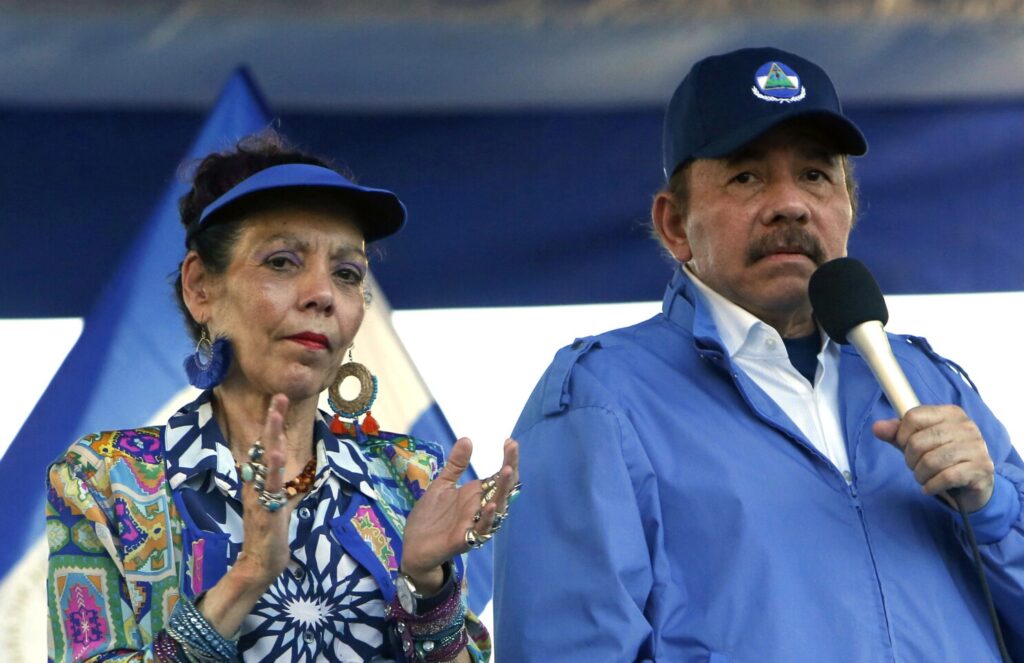Nicaragua’s Congress approved a constitutional reform on Thursday, designating President Daniel Ortega and Vice President Rosario Murillo as “copresidents,” further consolidating the ruling family’s control over the country.

The reform also extends the presidential term from five to six years, strengthening Ortega and Murillo’s hold on power. With the Sandinista party dominating Congress and government institutions, the measure faced no significant opposition.
Experts say the new constitution, which took effect Thursday, is designed to ensure Murillo’s eventual succession to the presidency and erode the last remaining checks on executive power. Murillo, who already wields considerable influence in the government, described the reform in a state media broadcast as a move that “strengthens the model of people’s President, the model of direct democracy.”
The measure comes amid an ongoing crackdown by Ortega’s government, which has escalated since mass protests in 2018 were violently repressed. Authorities have imprisoned and exiled opposition leaders, religious figures, and journalists, stripping hundreds of their citizenship and seizing their assets. Since 2018, more than 5,000 organizations, many of them religious, have been shut down, forcing thousands of Nicaraguans into exile.
The constitutional change drew swift condemnation from human rights advocates. Reed Brody, an American human rights lawyer and UN expert on Nicaragua, criticized the move, calling it “yet another expansion of the family’s power” in a post on social media platform X.
“Nicaragua’s grotesque constitutional reforms sound the death knell for the rule of law and basic freedoms,” Brody wrote.



